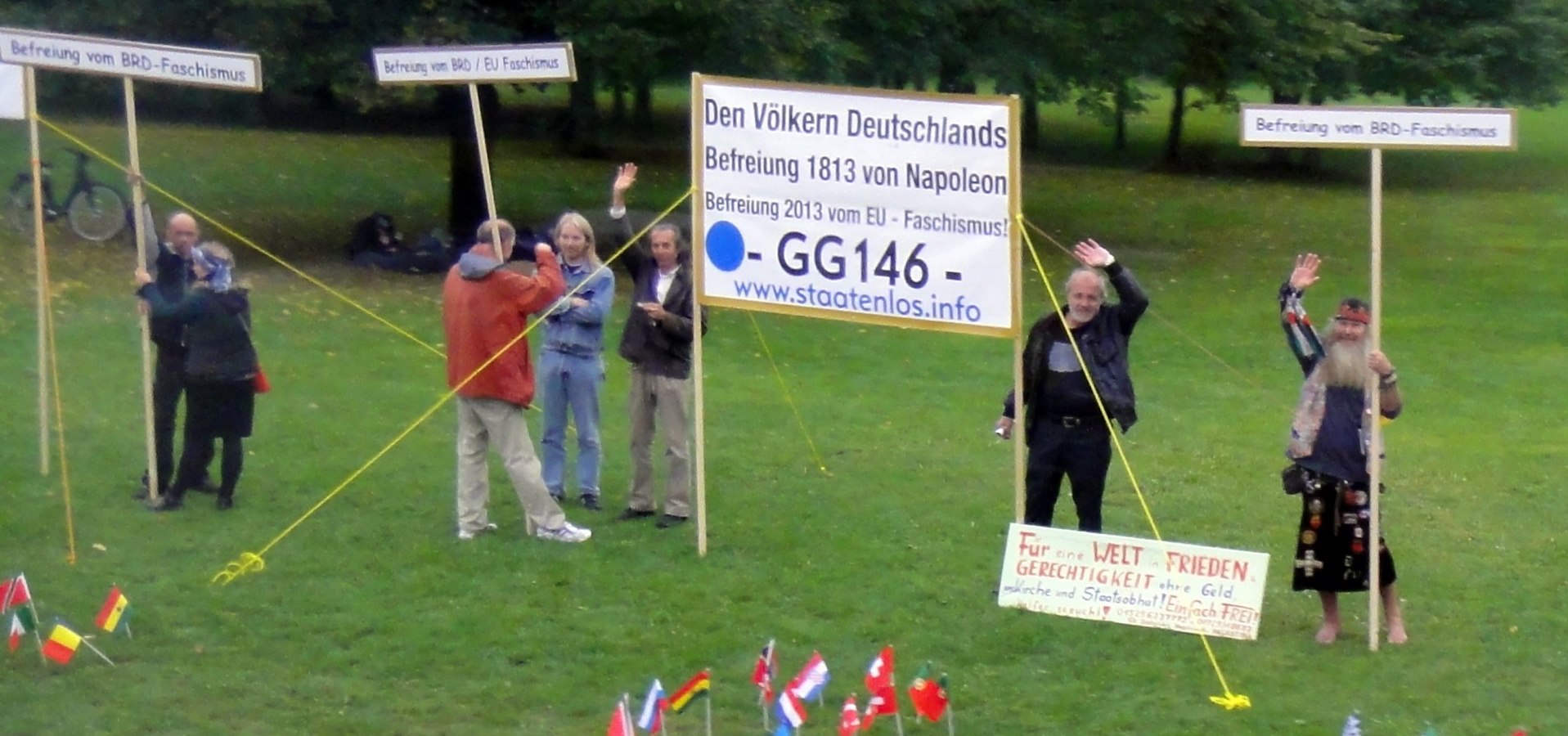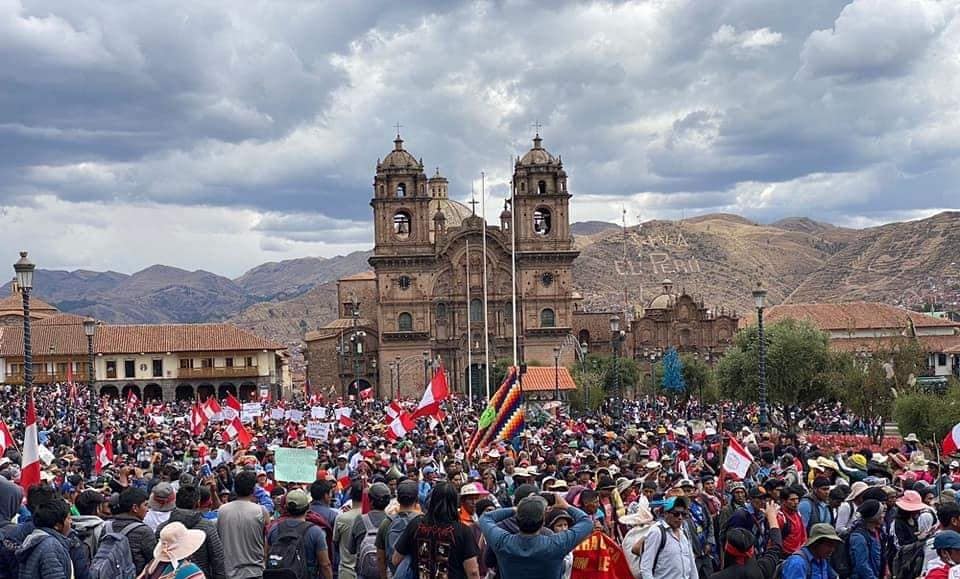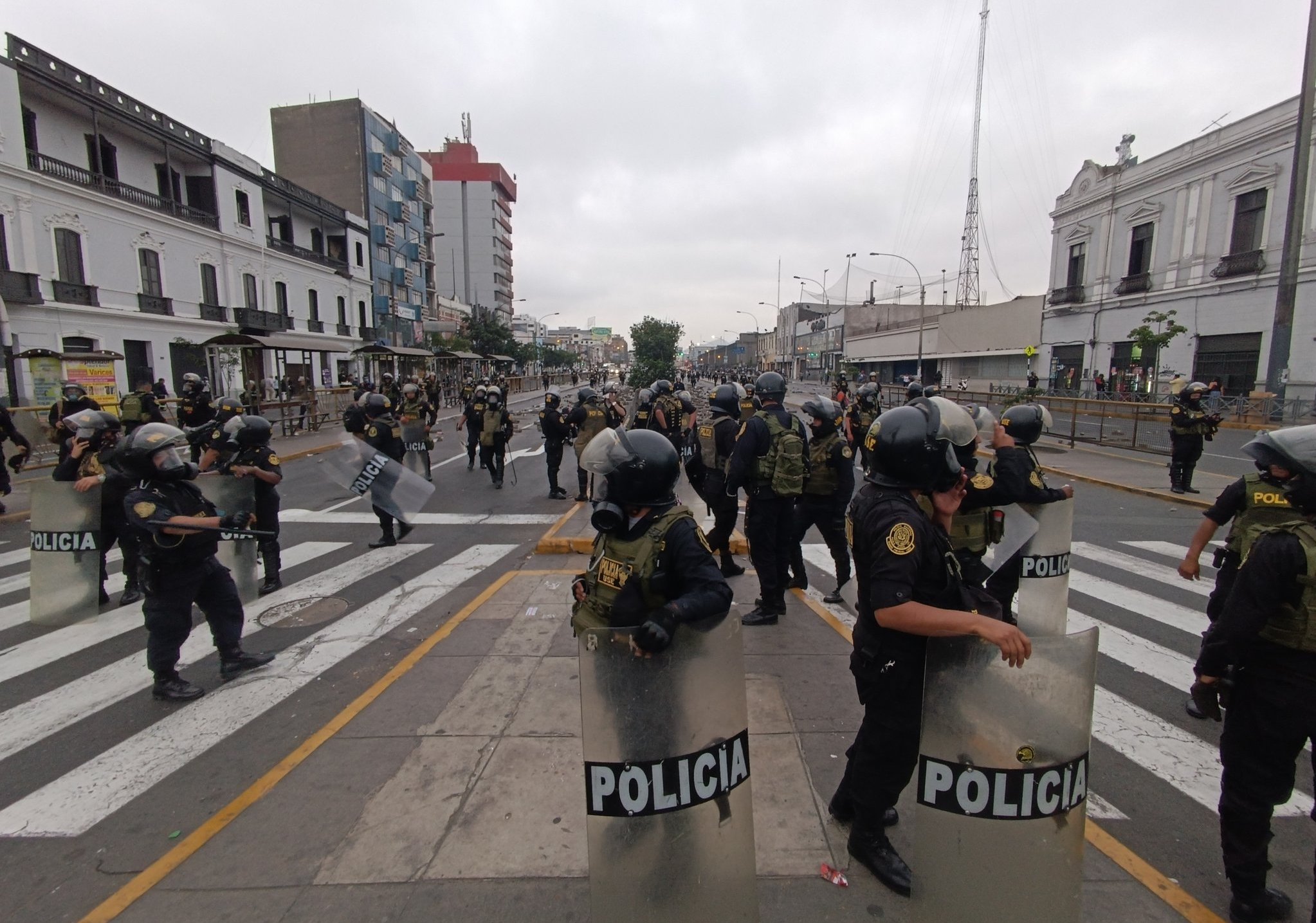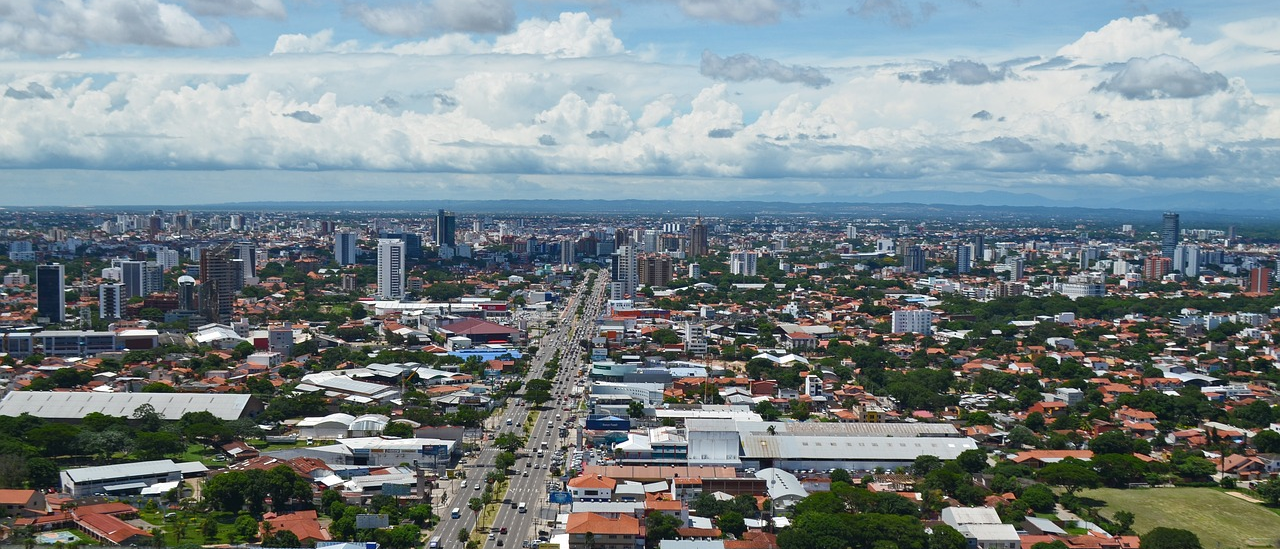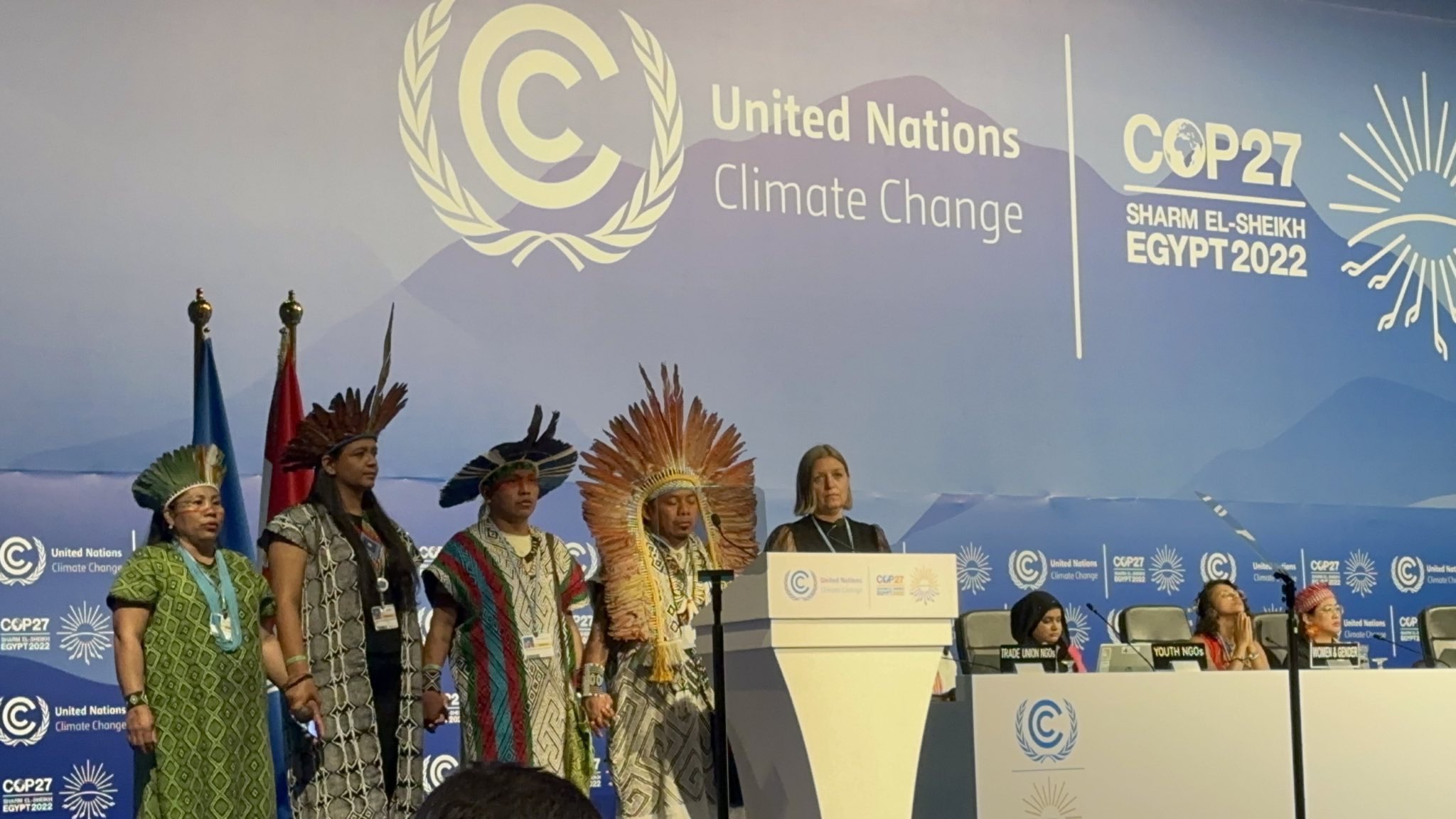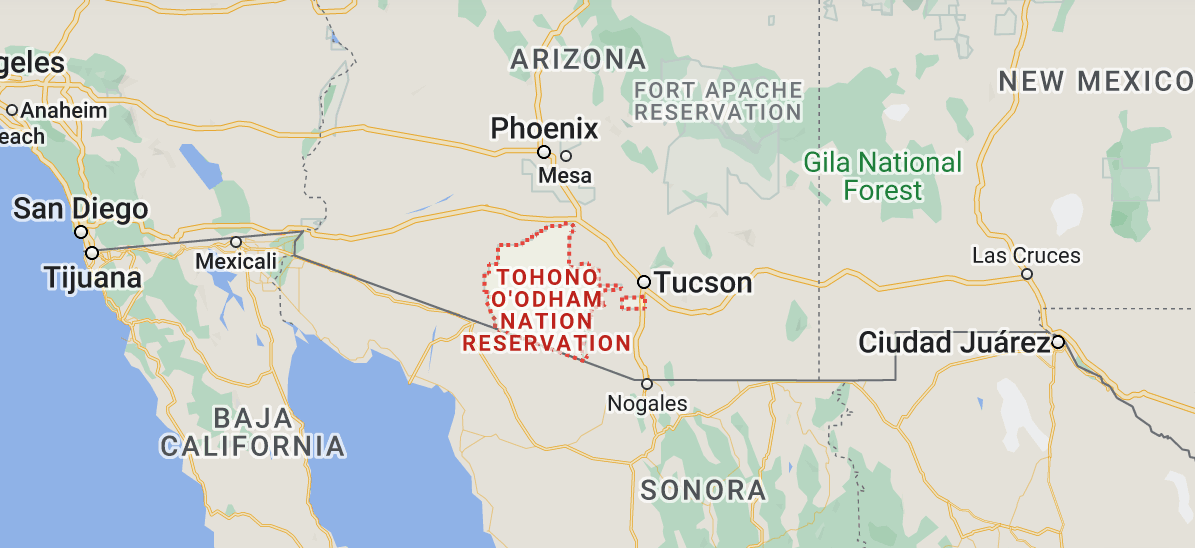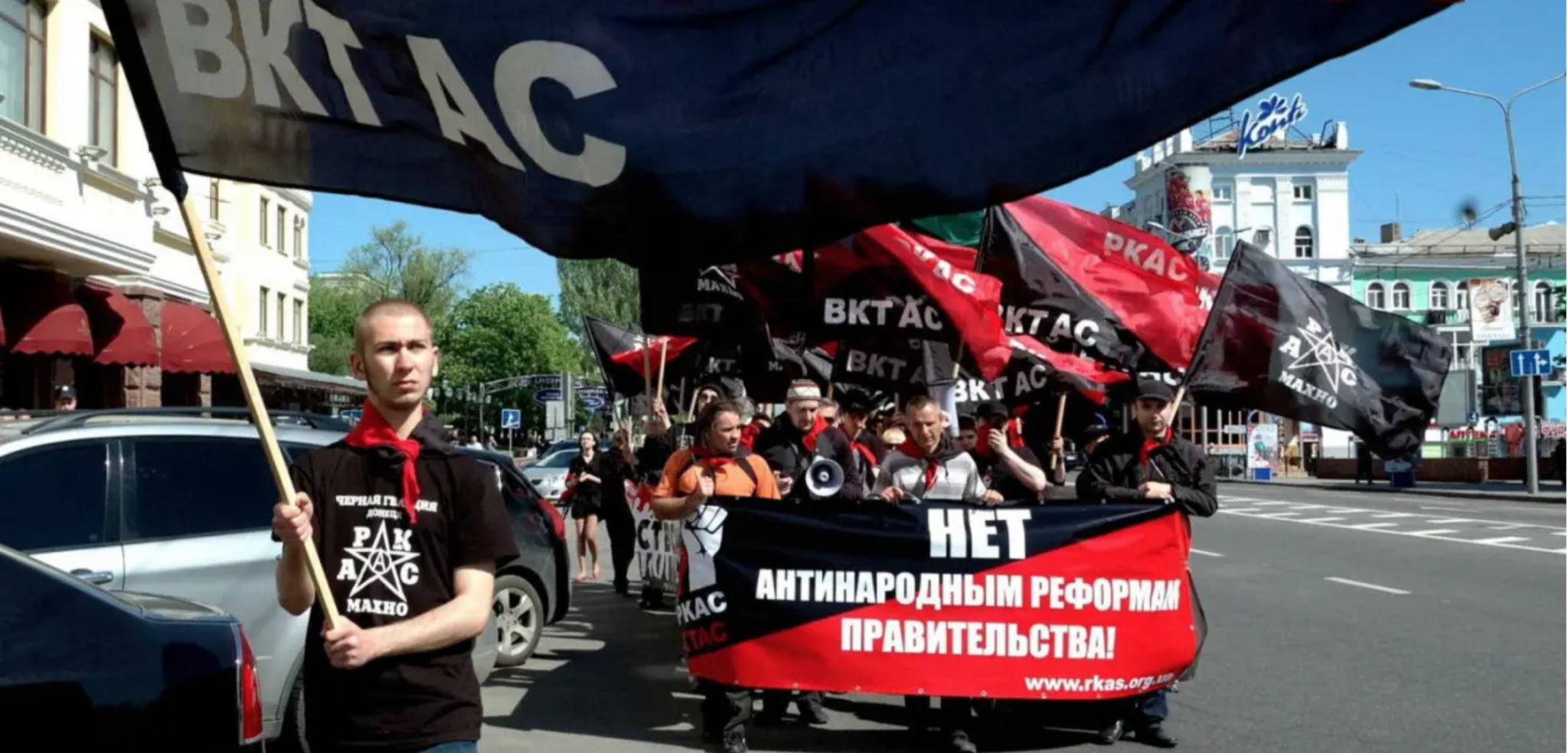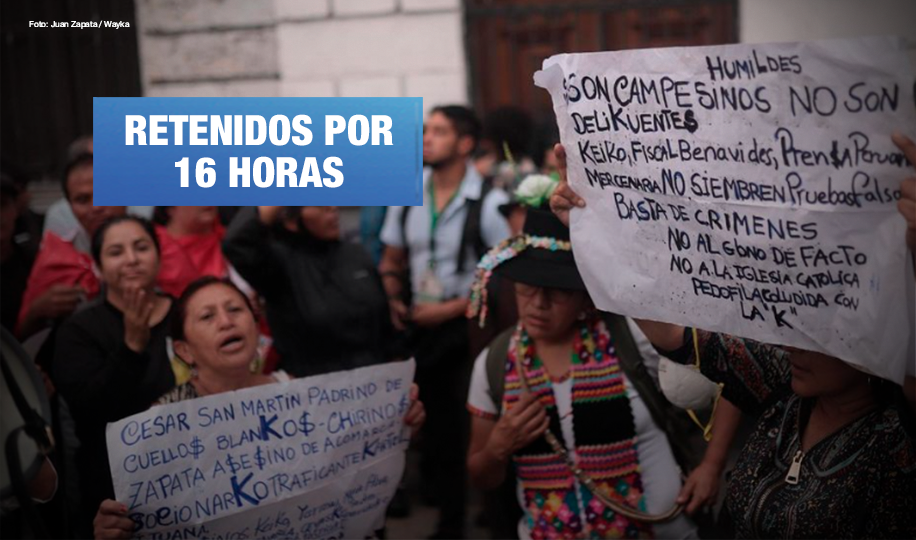
Campesino leaders targeted in Peru repression
Amid ongoing protests over the removal from power of president Pedro Castillo, Peru’s Anti-Terrorist Directorate (DIRCOTE) raided the Lima offices of the country’s main union of peasants and rural workers. Dozens on the premises were held there and interrogated, without access to legal counsel, for 16 hours. Rural leaders from across the country were gathered at the national headquarters of the Campesino Confederation of Peru (CCP) at the time of the raid to discuss coordination of protest actions. In the days immediately before and after the raid, government offices were burned by protesters in Arequipa, in Huancavelica, and in Ayacucho. (Photo: Wayka)



